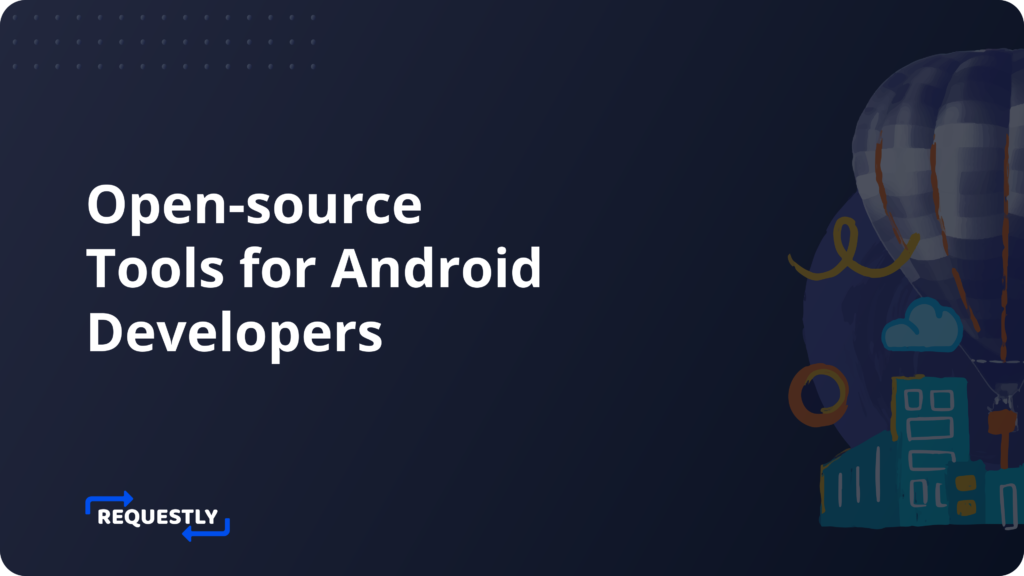Free Open-source Tools for Android Developers

Introduction
“Software is eating the world,” as Marc Andreessen once said, and open-source is its voracious appetite. This shift represents a new era of transparency, collaboration, and innovation. Open-source software offers unprecedented flexibility and fosters vibrant communities.
Apart from the advantages to developers, open source also has significant business benefits. Businesses can choose to self-host open source software if there are privacy or security reasons. Longevity is another advantage because even if the company behind a certain software goes away, users can continue using the software ad infinitum.
Let’s see what the universe of Android development tools has to offer:
Open-Source Development Tools
Testing
- Espresso is an automated user interface testing framework for Android developed by Google. Espresso tests state expectations, interactions, and assertions clearly without the distraction of boilerplate content, custom infrastructure, or messy implementation details getting in the way.
- Maestro is the easiest way to automate UI testing for your mobile app. It is built on learnings from its predecessors (Appium, Espresso, UIAutomator, XCTest) and has built-in tolerance for flakiness and delays. Setting up Maestro is simple, and tests are defined using a declarative syntax in YAML.
- Screenshot-tests-for-android is a library by Facebook that can generate fast deterministic screenshots while running instrumentation tests on Android. It comes with scripts which allow iteration on a view or layout and quickly see how the view renders in a real Android environment, without having to build the whole app.
Debugging
- Requestly: Inspect and Modify Network Traffic: Debugging network issues in your Android app becomes effortless with Requestly. It empowers you to inspect and tweak network traffic, making it an essential tool for enhancing the user experience.
- Flipper: Extensible mobile app debugger: Flipper is a platform for debugging iOS, Android and React Native apps. Visualize, inspect, and control your apps from a simple desktop interface. Flipper itself only provides the architectural platform. What makes it useful are the plugins built on top of it, such as Logs, Layout Inspector and Network Inspector.
- LeakCanary: Effortless Memory Leak Detection: Say goodbye to memory leak woes with LeakCanary. This open-source library automatically detects and details memory leaks in your app, making it easier than ever to identify and resolve these issues.
- Scrcpy: Built by Genymobile, scrcpy mirrors Android devices (video and audio) connected via USB or over TCP/IP, and allows control of the device with the keyboard and the mouse of the computer. It does not require any root access. It works on Linux, Windows and macOS.
- Nullaway is a tool developed by Uber to help eliminate NullPointerExceptions (NPEs) in Java code. NullAway is fast and practical, built as a plugin to Error Prone, and can run on every single build.
Publishing
- Fastlane: App automation done right: fastlane is an open source platform aimed at simplifying Android and iOS deployment. It can run as part of a CI pipeline or as a command line tool. It helps with automating screenshot generation, distributing beta builds and production releases.
- Tramline – Easy Release Coordination: Navigating the complex path to a store release is streamlined with Tramline. It stitches together git automations, build approvals, release metrics, and post-release monitoring in an easy-to-use dashboard. By codifying the release process, Tramline saves time, reduces human errors, and ensures hassle-free releases to the Play Store.
- Gradle Play Publisher: GPP is the unofficial release automation Gradle Plugin for Android apps. It can do anything from building, uploading, and then promoting your App Bundle or APK to publishing app listings and other metadata.
Monitoring
- ACRA: Application Crash Reports for Android is a library that easily integrates crash reporting into Android apps. It catches exceptions, retrieves lots of context data, and sends them to a backend like Acrarium or Tracepot.
Conclusion
In a nutshell, open-source tools are the heroes of Android app development. Whether it’s Espresso, Maestro, Tramline, or the magic of Requestly, they empower developers to create mind-blowing apps while being part of a vibrant open-source community.
Contents
Subscribe for latest updates
Share this article
Related posts



















